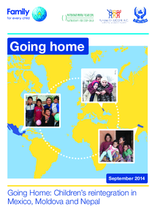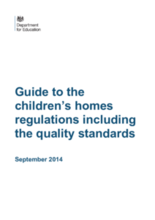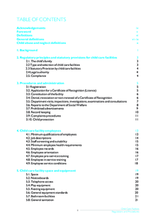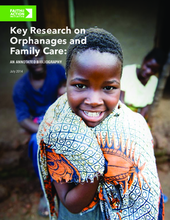Displaying 1171 - 1180 of 1510
This report is prepared within the MONEE project of UNICEF Regional Office for CEE/CIS. It provides an overview of alternative care in Armenia.
This animated video, made for an Australian audience, illustrates the orphanage industry in Cambodia, particularly how Australian “voluntourists” unwittingly contribute to the exploitation and traumatization of children in orphanages.
This report from Family for Every Child and partners summarises research on children’s reintegration that took place in Mexico, Moldova and Nepal from 2011 to 2014.
This guide accompanies the Children’s Homes Regulations 2015 from the United Kingdon and provides further explanation and information for everyone delivering residential care.
This report highlights the prevalence of different forms of violence against children. It is based on global figures and data from 190 countries.
This Masters thesis paper, by Michael Maher King of the University of Oxford, reviews the situations of children in institutional alternative care in Israel and Japan.
This video features a segment of a talk on the effects of care environments on children, hosted by the Christian Alliance for Orphans. The key speakers featured include Dr. Kathryn Whetten & Dr. Charles Nelson, who discuss the Positive Outcomes for Orphans study (POFO) and the Bucharest Early Intervention Project (BEIP), respectively.
The Heads of State of the Caribbean region endorsed the Call to Action to end the placement of children under three years of age in residential care institutions at the 35th CARICOM conference.
This document contains a set of regulations and procedures which the Zambian Government has established as the “Minimum Standards of Care for Child Care Facilities.”
This resource is provided as a working bibliography of key research and evidence-based policy papers on the care of orphans and other vulnerable children separated from parental care.






